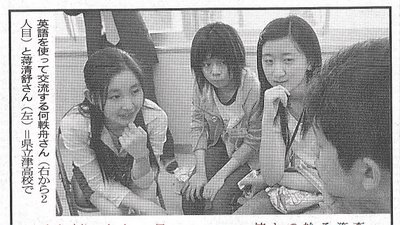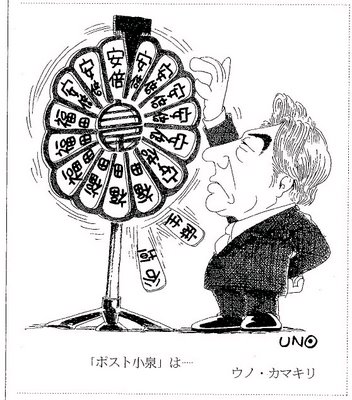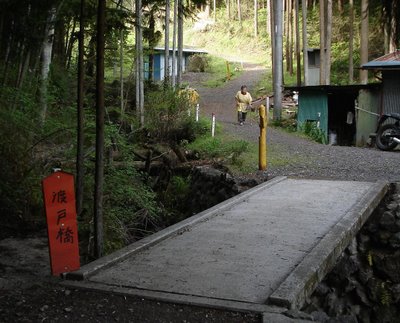The LDP faces a puzzle: what is the voting criteria when both credible candidates for the party presidency are from the same faction?
Policy? Fukuda has clearly stated his intent to stay away from Yasukuni in the hopes of winning the votes of the Ajia-gaiko yusen groups like the former Komoto faction. Abe has been cagey about Yasukuni but one must consider sanpai his default position. As for the other big issue, whether or not to raise taxes to cover the fiscal deficit, Abe has not been adverse to letting people believe he will follow the Koizumi-Takenaka line of economic growth first-fiscal sanity later--or never. Fukuda, by contrast, is deep in "serious"mode: the fiscal outlook of Japan is "serious" and he is "serious" about finding a solution.
However, the last thing any LDP Diet members want is a vote on policy. Having to choose between Abe or Fukuda based on policy differences would mean having to take a stand and make a commitment. Worse yet, the new party president and the public might even believe the LDP had a duty to carry out the winner's political program!
Personality? Best not to go there.
Age? Ahh, now we are getting somewhere.
Fukuda is 69. He will be 70 in September.
Abe is 51.
Former prime minister Mori Yoshiro has been wailing to any microphone pointed in his direction that he has lost control of his faction ( As if he ever had any... ). According to Mori, most of the faction's elder members want Fukuda to carry the faction's standard in the September election. Not surprising, as these codgers are looking out for the faction, not the country. For the faction, the best plan is to send Fukuda to go up the hill first. He gets shot to pieces for trying to reduce the fiscal deficit and making nice with China. After a final, mortal wounding following a calamitous House of Councilors election, Fukuda resigns, allowing Abe to replace him in an immaculate ascension. Abe then pulls a Koizumi and reigns for five years.
Faction gets three prime ministers in a row and eleven years of the party presidency. QED.
Younger members of the Mori faction, much to Mori's annoyance, do not favor the "sacrificial lamb as party president and prime minister" theory. The younger generation's nembutsu is the Koizumi "I know this sounds dumb but none of the faction leaders seems to get it" Rule: the duty of the party leader is to win elections. While losing may be bad for the party leader, it is a disastrous for younger members. Electoral losses are always heaviest among those with the shallowest political base.
The concerns of the younger members of the Mori faction are shared by the younger members of other factions. Hence the emergence of the "League of Lawmakers in Support of a Renewed Challenge" (Sai charenji shien giin renmei), a cross-faction study group whose name plays off the "second chance in life" theme pushed by Abe. While "Renewed Challenge" claims to be non-partisan, it is so transparently an Abe support group that LDP Secretary-General Takebe Tsutomu has seen it necessary to warn members of the party central executive down to the deputy secretary and parliamentary affair deputy secretary level to stick to their knitting.
Which brings up the interesting graphic in the May 29 Tokyo Shimbun accompanying that paper's take on Fukuda's chances in the struggle for Diet member votes.

Courtesy: Tokyo Shimbun
According to the graphic, at 69 years of age Fukuda is 41st among LDP Diet members when ranked in descending order according to age. Abe, at 51 years of age, is ranked 275th, with 129 LDP members his junior.
Now the respective age strategies at the top and the bottom of the graph are clear. The forty older fogies at the top have little fear of electoral loss. They will tend to favor Fukuda, out of spite against the youthful princeling Abe and as the "anti-Koizumi" candidate. The 129 members younger than Abe have a strong incentive to chose a popular party leader--one who, like Koizumi, can translate his own personal credibility into votes for the LDP, no matter who is the party's candidate. For them Abe is the clear favorite
The mystery lies in what will motivate the votes of the 234 lawmakers whose ages place them in between Fukuda and Abe. These Diet members are in their fifties and sixties; they know that under under normal rules they would be ministerial and party executive material. Some may even harbor illusions of running for the party presidency next time around. They fear, with good reason, that an Abe victory in September would be interpreted as their generation's abdication of the party leadership to the generations born after 1954. In order to keep open their options, they might be tempted to support Fukuda now, possibly pocketing a ministerial or party executive post as compensation for their vote--then switching horses next year.
Add to this the zeitgeist that a vote for Fukuda is a vote against Koizumi's bulldozing of the factions and one senses that Fukuda's chances among members of the Diet are a lot better than the newspaper popularity polls or even a canvassing of the membership of the Diet might indicate.











